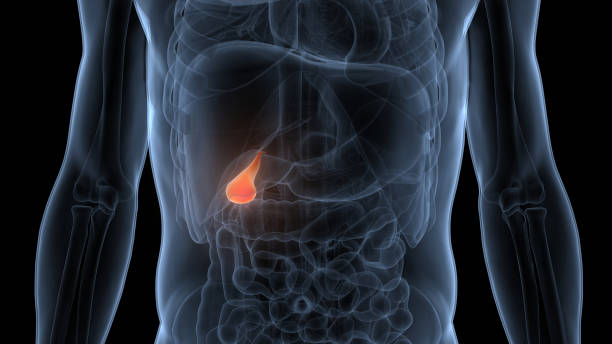03 Feb 2026
Rhinoplasty Revision Surgery in Mohali: Cost When Your First Nose Job Fails


Dr. Sunil Garg
06 Sep 2025
Call +91 80788 80788 to request an appointment.
Gallstones are a common health concern, particularly prevalent among individuals struggling with obesity or undergoing rapid weight loss. This intricate relationship between gallstones and weight challenges is especially critical for residents in Punjab, where dietary and lifestyle factors play a significant role. Understanding this connection can help in timely interventions and effective management strategies, ensuring optimal health outcomes.
Gallstones are hardened deposits that form in the gallbladder, a small organ located beneath the liver. These stones can vary in size and composition, typically consisting of cholesterol or bilirubin. When gallstones obstruct the flow of bile, they can cause severe pain and lead to complications.
In Punjab, where dietary habits often include high-fat diets, the prevalence of cholesterol-rich gallstones is notably high. The gallbladder's function is to store bile produced by the liver, a process crucial for digesting fats. However, excessive cholesterol in the bile can lead to stone formation.
Obesity is a significant risk factor for developing gallstones. Here are some of the pathways through which obesity contributes to this condition:
While weight loss is beneficial for overall health, rapid shedding of pounds can increase the risk of gallstones. This paradox arises because:
Residents of Punjab considering drastic weight loss programs should be cautious and consult healthcare professionals to minimize this risk.
Many individuals with gallstones remain asymptomatic. However, when symptoms appear, they often include:
If you're experiencing these symptoms in Punjab, it's important to seek medical attention promptly to prevent complications.
Livasa Hospitals across Punjab offer comprehensive treatment options tailored to the needs of gallstone patients. Treatment modalities include:
| Treatment Method | Description |
|---|---|
| Medications | Drugs like ursodiol can dissolve cholesterol stones. |
| Laparoscopic Surgery | A minimally invasive procedure to remove the gallbladder, often performed at Livasa Nawanshar and other centers. |
| Dietary Modifications | Incorporating a low-fat diet can manage symptoms and reduce stone formation risks. |
Preventing gallstones involves lifestyle changes that can significantly reduce risks. These include:
Residents of Punjab should consider these strategies while consulting healthcare practitioners, such as those at Livasa Hospitals, to tailor prevention efforts.
Laparoscopic surgery, also known as minimally invasive surgery, has revolutionized the treatment of gallstones. This procedure involves small incisions and the use of a camera to guide the surgeon. The benefits include:
At Livasa Hospitals in Mohali, Khanna, and other locations, highly skilled surgeons perform laparoscopic procedures with cutting-edge technology to ensure optimal patient outcomes.
The link between gallstones, obesity, and weight loss is a critical health issue, especially for the Punjab population, where lifestyle factors and dietary habits enhance risk. Understanding and addressing these risks through medical consultation and appropriate interventions at Livasa Hospitals can prevent complications and improve quality of life.
If you're experiencing symptoms or want to discuss preventive measures, contact Livasa Hospitals at +91 80788 80788 or schedule an appointment online.
Rhinoplasty Revision Surgery in Mohali: Cost When Your First Nose Job Fails
Plastic Surgery After Massive Weight Loss: Body Contouring Packages in Mohali
ENT + Cosmetic in Mohali: Septoplasty for Breathing with Cosmetic Rhinoplasty Offers
Livasa Healthcare Group Corporate Office,Phase-8, Industrial Area, Sector 73, Sahibzada Ajit Singh Nagar, Punjab 160071
| Mohali | +91-99888 23456 |
| Amritsar | +91-99887 49494 |
| Hoshiarpur | +91-99883 35353 |
| Nawanshahr | +91-75081 82337 |
| Khanna | +91-98888 05394 |